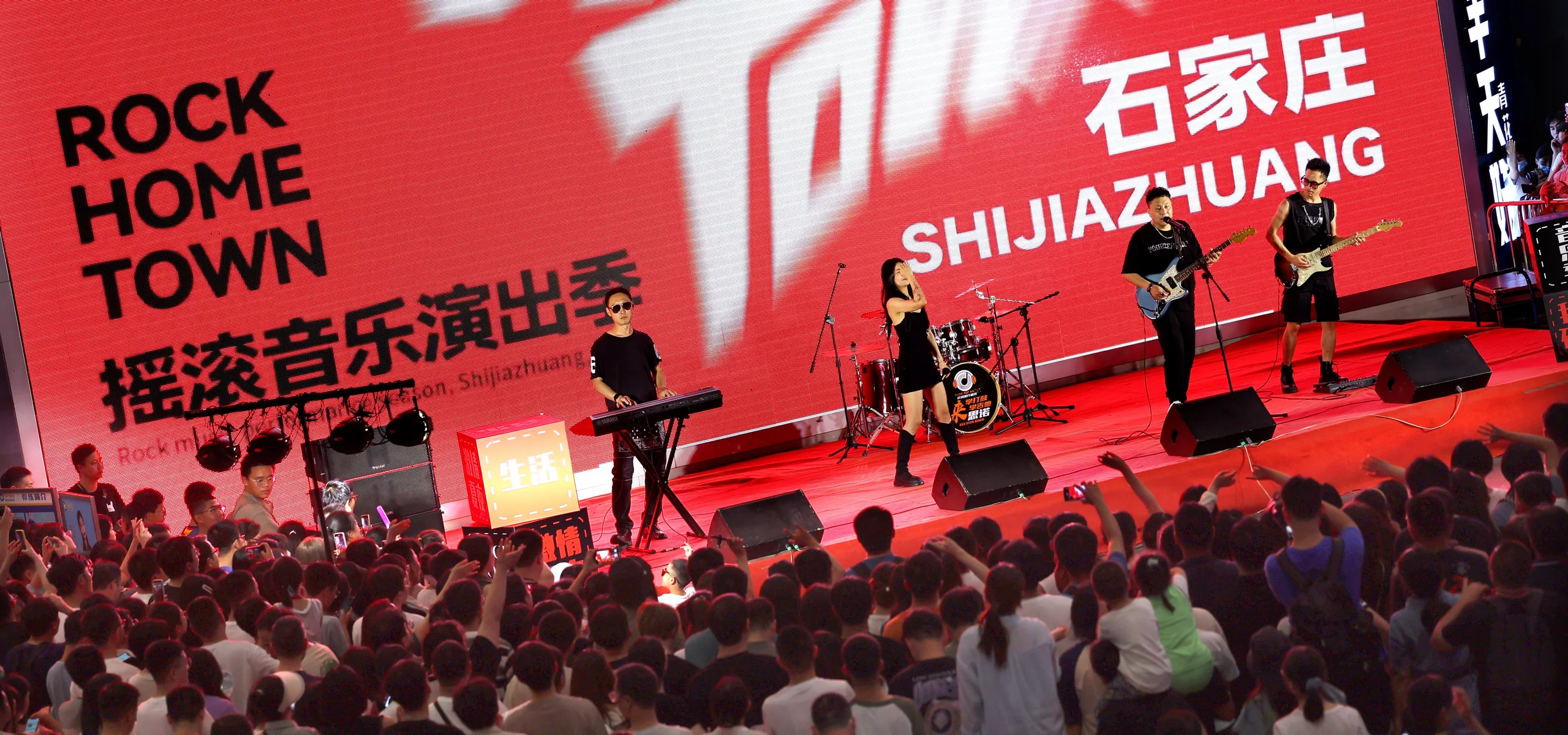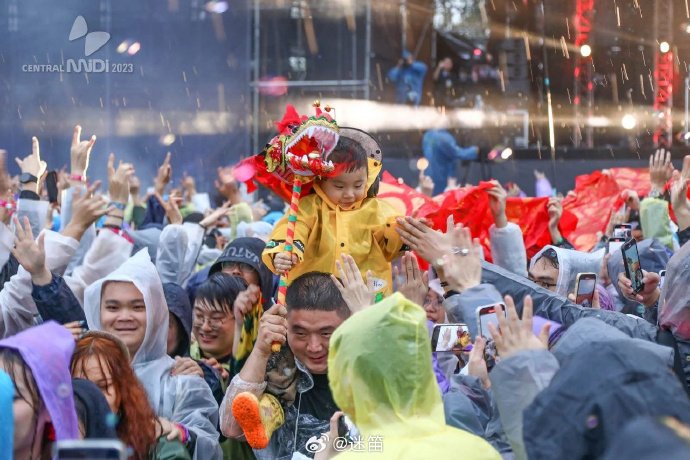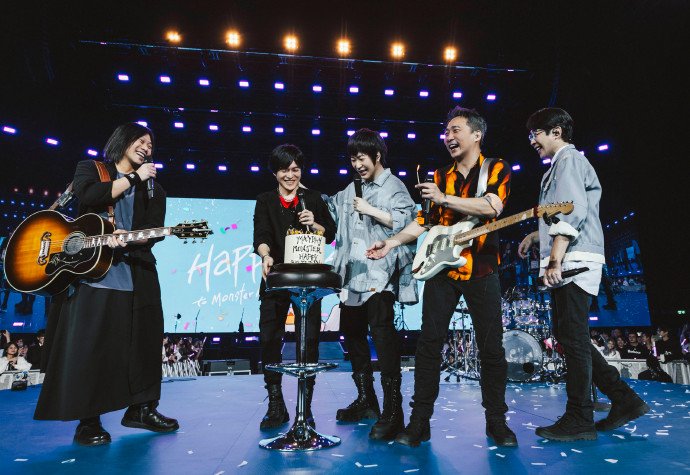AI singers, lip-synching, wars over tickets, chaotic music festivals…the biggest music news of the year in China
Even though China’s economic recovery in 2023 was sluggish, the country’s music sector boomed. While consumers are finding cheaper alternatives for everything from meals to lipsticks and down coats, music fans continue to splurge on concert and music festival tickets, whose prices have soared from several hundred yuan to over 10,000 in some cases.
There were over 342,400 commercial performances nationwide in 2023, generating a total revenue of 31.54 billion yuan, according to statistics released by the China Association of Performing Arts, an industry NGO. In the first three quarters of the year, 60 million people attended concerts, surpassing the number in 2019. Singer Jay Chou’s four concerts in Haikou, Hainan province, alone attracted over 154,000 visitors in four days (from June 29 to July 2).
However, not everything has gone to plan in the industry, with ticket scalpers attracting criticism, artists being accused of miming during live performances, and mass thefts at music festivals. Here are some of the biggest stories from China’s music sector this year:
Battles over tickets
The long-running dispute between music fans and huangniu (黄牛), or ticket scalpers, has escalated, alongside the trend of “revenge spending” in offline performances after three years of interruption due to the Covid-19 pandemic.
Tickets for many musical events sold out astonishingly fast. On May 9, around 300,000 tickets for Taiwan rock band Mayday’s six concerts in Beijing between May 26 and June 3 reportedly sold out within five seconds on Damai, China’s largest online ticketing system, and two other booking platforms. Scalped tickets on other platforms, such as the e-commerce giant Taobao, sold for up to 10 times higher than the original price. Many enraged fans boycotted the scalpers and posted a slogan online: “We’d rather stand outside the stadium than let the huangniu profit.”
With so many complaints both online and offline, the authorities have taken steps to crack down on scalpers. In September, the Ministry of Culture and Tourism and the Ministry of Public Security issued a joint statement, imposing a strict real-name registration system for large-scale commercial performances with more than 5,000 attendees. The system mandates that one person can only purchase one ticket under their national ID number and must enter the venue with their own valid ID. This measure, believed to be an effective way to prevent scalping, had been slackly implemented before.
However, a poll by the state broadcaster CCTV this November shows that only around 7,500 out of 61,000 respondents believed the measure made it easier for them to purchase concert tickets. Over half of the people surveyed believe that the core reason behind the scalping market is that “demand is higher than supply.” On Damai, over 5.2 million people expressed their interest in Jay Chou’s Tianjin concerts this September, but there were only 130,000 tickets available. As a result, many fans have resorted to providing their ID numbers to scalpers, hoping to secure a spot at the concert, even if it means paying a hefty price.
Chaotic music festivals
Music festivals in China enjoyed a similarly turbulent year. Around 300 musical festivals emerged in small cities, as regional governments and organizers tried to boost their local economies. During the National Day holiday this October, Jingzhou, Hubei province, received over 5.4 million visitors, nearly double the number from 2019, thanks in part to a three-day music festival.
However, the lack of preparation in some small cities caused issues with accommodation and even security for some fans. The Midi Festival, one of the most popular for rock fans in China, came to Nanyang, Henan province, a city of over 9 million people, in late September. Over 150,000 participants flooded into the city over the four-day event. However, many attendees reported their belongings and tents missing from the designated campsite the day after the festival wrapped up. Local authorities retrieved many stolen objects, including 79 ID cards, 17 cellphones, and 3 laptops, from nearby villagers and returned them to their owners.
“Rock Home Town”
Also to revitalize the economy, Shijiazhuang, the capital of Hebei province located about 300 kilometers from Beijing, officially embraced its long-time nickname—“Rock Home Town,” which is the literal meaning of its Chinese name. In July, the local government announced an initiative to build a “rock ’n’ roll city,” beginning with a series of live music performances from July to October.
Notorious for its air pollution during the 2010s, the industrial city is the birthplace of Popular Songs (Rock) and So Rock! Magazine, two of the country’s earliest and most popular rock magazines, although they ceased publication in 2018 and 2013, respectively. It is also home to Omnipotent Youth Society (OYS), a popular rock band with a 17-year history.
While a government report indicates that there are 300 bands in the city, with 50 of them earning a living from their original music, an industry insider quoted in a report by media outlet Zhengmian this September claimed that, in reality, only OYS has made a living out of music.
Furthermore, the government initiative seems to have sparked more controversy than excitement. Many question how rock music, traditionally a symbol of freedom and rebellion, can align with the government’s advocacy for “positive energy.” Ironically, the most viral rock-related news from Shijiazhuang this year involved Ding Xiaolong, the lead singer of a rock band, who took off his pants during a performance in July that was not organized by the government. The musician was later detained for his “vulgar behavior,” and the organizing company was fined 200,000 yuan and suspended from holding future events.
Lip-synching controversy
How do members of the popular rock band Mayday maintain their energy, having held almost 40 concerts in less than six months? Part of the answer might lie in lip-syncing. Music blogger “Shenglixue (声理学)” claimed on Weibo in November that the band’s lead singer Ashin mimed along to songs during many of their concerts this year. Several days later, another music blogger “Maitian Nongfu (麦田农夫)” asserted that Mayday lip-synched 5 out of the 12 songs at one concert. His detailed analysis of the soundtrack from the band’s November 16 performance in Shanghai triggered heated debate online.
Many voiced their support for the bloggers as they consider lip-syncing unethical and unacceptable, especially given the high cost of concert tickets. However, many loyal fans have refuted the lip-synch allegation.
Shanghai’s Municipal Administration of Culture and Tourism started an investigation after Shenglixue reported the band to the authorities in early December, while the band’s management agency dismissed the accusation as a “malicious attack” and “slanderous rumor” in a statement issued on December 4. At the time of writing, the hashtag “Assessment of Mayday’s lip-synching” has garnered over 630 million views on Weibo.
Although regulations in China prohibit lip-syncing in commercial performances, there is controversy over defining and identifying such practices, especially in terms of using pre-recorded background vocals and music. If the band is found guilty, they may face a fine between 50,000 yuan and 100,000 yuan. Consumers would also be eligible for compensation three times the original ticket price, Ding Tao, a lawyer from Shenzhen, Guangdong province, told China Newsweek magazine this December.
AI musicians
Stefanie Sun, a Singaporean singer and pop music icon in the 2000s, went viral again this May when videos of her singing various tracks, from folk songs and children’s songs to theme songs from animations, started circulating on Bilibli. These videos, all generated by AI, amassed millions of views within days.
AI versions of other musicians, from Jay Chou to Ariana Grande, generated using the software So-vits-svc, have also become popular on various social media platforms.
On the other hand, some musicians are deliberately using AI technology in their creations. For example, on March 22, Sandee Chan, a 53-year-old Taiwan Golden Melody Awards-winning singer and composer, announced on Weibo that her new song, released a week earlier, was entirely performed by an AI. No listeners had suspected anything before her announcement. In November, Tencent Music Entertainment Group and Leehom Wang’s studio jointly launched “AI Leehom,” along with its song “Letting Go.” Both the single and its music video were entirely generated by AI.
Despite these advancements, controversies over copyright issues and concerns about AI potentially replacing humans persist in music and other sectors, including design, writing, and translation. Sun, who has been living a low-profile life for the last few years, issued a statement lamenting how fast AI has taken over human tasks: “The very task that we have always convinced ourselves; that the formation of thought or opinion is not replicable by robots, the very idea that this is beyond their league, is now the looming thing that will threaten thousands of human conjured jobs.”

















